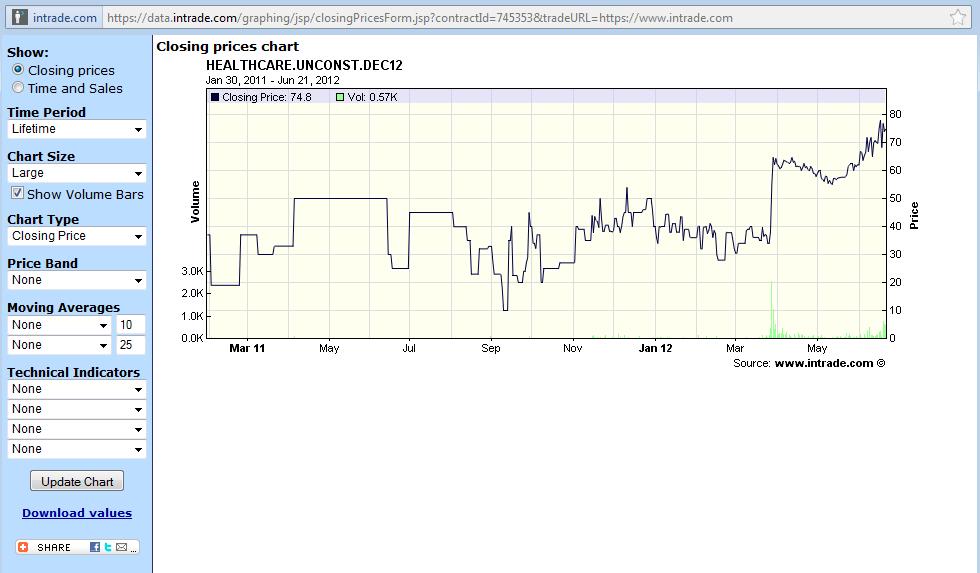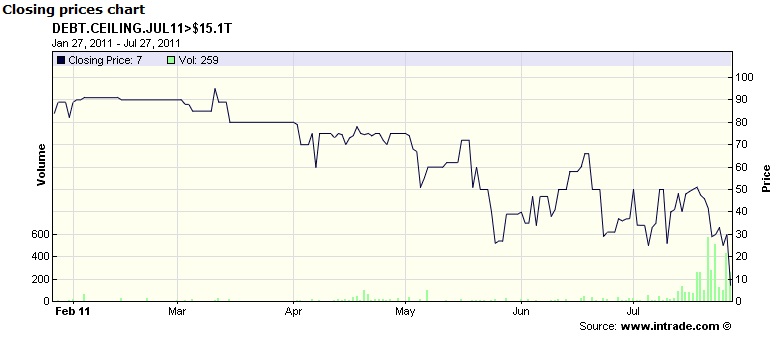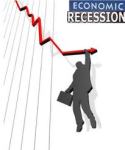 The other day the fellas at Poison Your Mind posted on shenanigans Romney supporters partook of to influence a form of social media:
The other day the fellas at Poison Your Mind posted on shenanigans Romney supporters partook of to influence a form of social media:
Of course some genius for Romney did this:
“A new academic paper digging into presidential betting in the final weeks of the 2012 election finds that a single trader lost between $4 million and $7 million placing a flurry of Intrade bets on Mitt Romney — perhaps to make the Republican nominee’s chance of victory appear brighter,” the Wall Street Journal reports.
“The anonymous trader placed 1.2 million pro-Romney contracts, some of which were actually in the form of bets against a Barack Obama victory. The most plausible reason for the betting, the authors conclude, is that ‘this trader could have been attempting to manipulate beliefs about the odds of victory in an attempt to boost fundraising, campaign morale, and turnout.’”
A fascinating story to be sure. On one hand, $1.2 million is just some sum of money spent to convince people to vote one way or another. It’s hard to distinguish between that and spending money on TV ads. The other hand? It’s chumpy. There’s something about placing that bet that violates “man law”.
But whatever. The mark of a desperate man only indicates a desperate man.
But is Romney alone in his “deception”?
Among influential U.S. political tweeters, President Barack Obama is the undisputed king of the fake followers. A MailOnline analysis ranks his sizable Twitter following as the most deceptive total among the 21 most influential accounts run by American politicians: More than 19.5 million of his 36.9 million Twitter followers are accounts that don’t correspond to real people.
The four phoniest accounts in the sample, which included Democratic and Republican Party leaders in Washington, D.C., were those belonging to President Obama, Vice President Joe Biden, first lady Michelle Obama and the White House communications shop.
Of the president’s 36.9 million Twitter followers, an astonishing 53 per cent – or 19.5 million – are fake accounts, according to a search engine at the Internet research vendor StatusPeople.com. Just 20 per cent of Obama’s Twitter buddies are real people who are active users.
Read the whole article, politicians of all kinds, from both sides of the aisle, are shown to have significant Twitter followers. Obama isn’t alone. However, it just goes to show that when a metric matters, people will maximize that metric.
I hate people.









